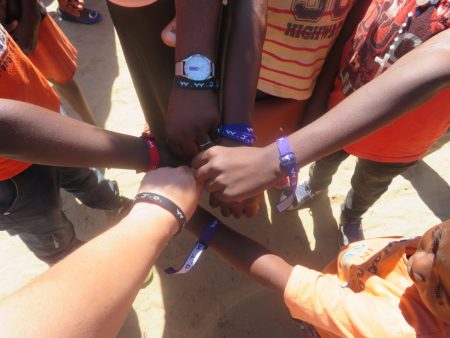
Final Spring Class – Zags in Zambezi 2019 (missing Ethan K, Chloe S., Fr. Baraza)
In the weeks preceding our departure to Zambia, I wake up early. Too early. Although it’s my twelfth trip to Zambia, I still feel the excitement, anticipation, and anxiety that a new journey brings. Did I order the water filters already? When is the cash advance going to be deposited? Are the GU students done with their curriculum? When is Mama Katendi traveling to Zambezi? My subconscious is working out the many questions in my dreams and I wake with thoughts of Zambezi. I can almost conjure the distinct smells of the burning grasses, the stunning sparkle of a Zambian smile, or the way my feet feel after a day of walking its’ sandy paths. I’m getting ready to travel.
“When you travel,
A new silence
Goes with you,
And if you listen,
You will hear
What your heart would
Love to say.”
It’s been a good and hard year. Teaching leadership has never felt so important and complex. Growth has been a consistent partner, keeping me on that learning edge, personally and intellectually. As I grade final papers from the spring semester, it’s not difficult to see the faces of students and remember the laughter and tears of true learning. The meaning making of leadership explores the shadow and light of each of us; asks us to explore the tensions in the world and ourselves. And Zambezi holds these tensions in powerful ways that brings delight.
“When you travel, you find yourself
Alone in a different way,
More attentive now
To the self you bring along,
Your more subtle eye watching
You abroad; and how what meets you
Touches that part of the heart
That lies low at home:”
I am keenly aware that one of the challenges of our Gonzaga-in-Zambezi program (or maybe any study abroad) is managing expectations. Returning students share stories, photos and videos of past harrowing tales, and a spring semester worth of reading, anticipating, and preparing that leads up to next Thursday, May 16th. As faculty we have expectations for the learning that will occur for our students; encounters with intercultural leadership, practices of accompaniment, and self-awareness from teaching and learning in new spaces.
Have you had that moment, when you are introducing two of your friends who don’t know each other, but you’re just sure that they will be fast friends? After a semester together, I see the amazing potential in this collection of Zags participating in Zambezi 2019 and I’m trying to manage my own expectations of introducing them to a community that I have come to love. A community that I love not because it’s perfect, but because I have come to know its parts; beautiful and broken, good and bad, alive and disturbing. I believe that in coming to know more about this community we journey to know about ourselves through transformational learning. Through reading and reflections and the strength of a learning community, we have the opportunity to bring our curiosities to global spaces and explore.
I leave you with the poem, For the Traveler, written by John O’Donohue, which we read at our opening retreat in February and will share at our Missioning service this week. It’s my hope that as we travel through this program, you would join us. Most days in Zambia, we will be writing blog reflections, and look forward to sharing our learning, as well as your comments and encouragements.
Dr. Josh Armstrong, Gonzaga-in-Zambezi Faculty Director
_________________________________
For the Traveler by John O’Donohue
Every time you leave home,
Another road takes you
Into a world you were never in.
New strangers on other paths await.
New places that have never seen you
Will startle a little at your entry.
Old places that know you well
Will pretend nothing
Changed since your last visit.
When you travel, you find yourself
Alone in a different way,
More attentive now
To the self you bring along,
Your more subtle eye watching
You abroad; and how what meets you
Touches that part of the heart
That lies low at home:
How you unexpectedly attune
To the timbre in some voice,
Opening in conversation
You want to take in
To where your longing
Has pressed hard enough
Inward, on some unsaid dark,
To create a crystal of insight
You could not have known
You needed
To illuminate
Your way.
When you travel,
A new silence
Goes with you,
And if you listen,
You will hear
What your heart would
Love to say.
A journey can become a sacred thing:
Make sure, before you go,
To take the time
To bless your going forth,
To free your heart of ballast
So that the compass of your soul
Might direct you toward
The territories of spirit
Where you will discover
More of your hidden life,
And the urgencies
That deserve to claim you.
May you travel in an awakened way,
Gathered wisely into your inner ground;
That you may not waste the invitations
Which wait along the way to transform you.
May you travel safely, arrive refreshed,
And live your time away to its fullest;
Return home more enriched, and free
To balance the gift of days which call you.

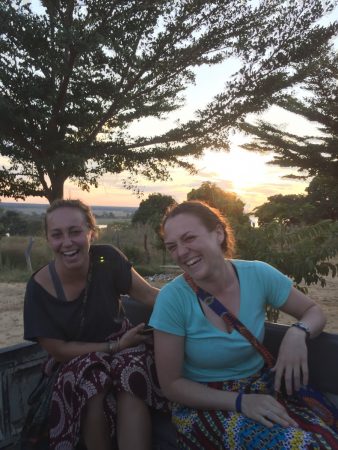

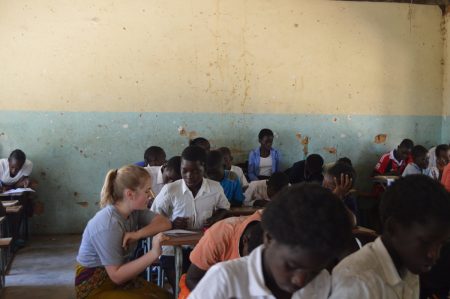 May 18, 2018, 09:45 hours
May 18, 2018, 09:45 hours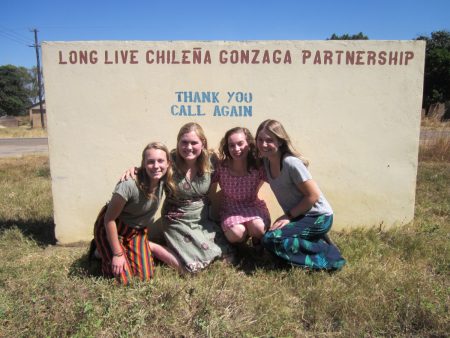 “Welcome Madam.” These are the words that greeted Maddie, Devon, Lexi and I every day in our English classes at Chilena. On Tuesday, we heard these words for the last time. We celebrated together in grade 8 and in grade 6, which provided an opportunity to reflect on everything we had done over the last two weeks.
“Welcome Madam.” These are the words that greeted Maddie, Devon, Lexi and I every day in our English classes at Chilena. On Tuesday, we heard these words for the last time. We celebrated together in grade 8 and in grade 6, which provided an opportunity to reflect on everything we had done over the last two weeks.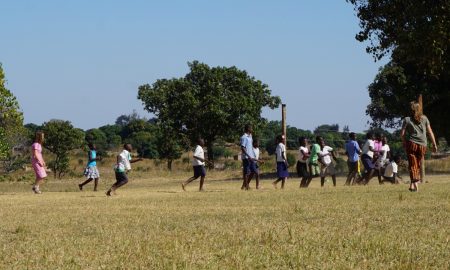

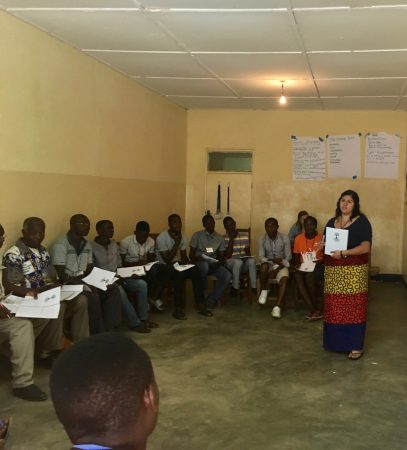 As we enter into our final days in Zambezi, I am experiencing so many emotions. I am filled with mixed feelings of happiness, gratefulness, and sadness. These past two weeks have been amazing; however, my experiences here were nothing like I expected them to be.
As we enter into our final days in Zambezi, I am experiencing so many emotions. I am filled with mixed feelings of happiness, gratefulness, and sadness. These past two weeks have been amazing; however, my experiences here were nothing like I expected them to be.